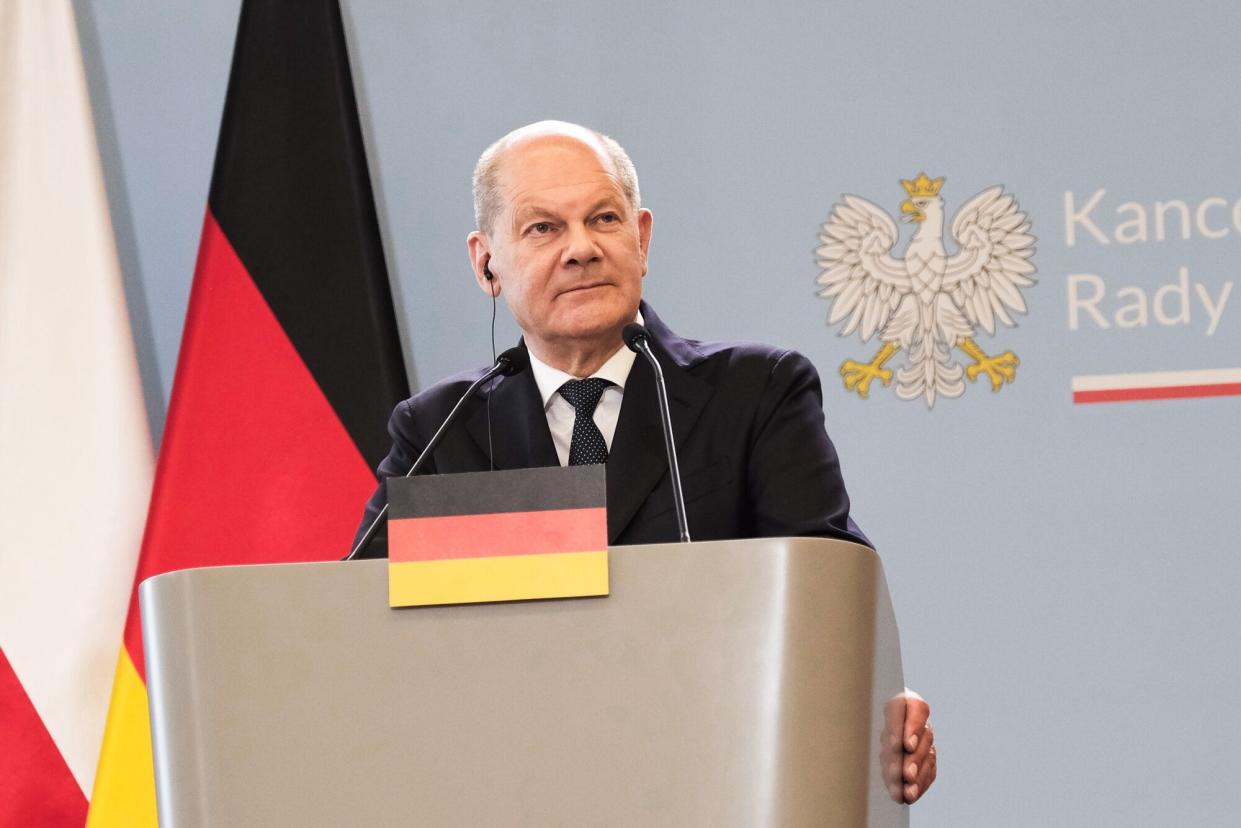German Coalition Nears Budget Deal as Debt Brake Limits Options

(Bloomberg) -- Chancellor Olaf Scholz’s coalition will deliver a draft budget as early as Friday that aims to put an end to political infighting by boosting spending on infrastructure and defense while adhering to debt restrictions, people familiar with the matter said.
Most Read from Bloomberg
Democrats Weigh Mid-July Vote to Formally Tap Biden as Nominee
US Allies Allege China Is Developing Attack Drones for Russia
China Can End Russia’s War in Ukraine With One Phone Call, Finland Says
S&P 500 Closes Above 5,500 in Record-Breaking Run: Markets Wrap
Negotiations over the 2025 budget have dragged on for weeks, putting pressure on the parties — Scholz’s Social Democrats, the Greens and the pro-business Free Democrats — to show they can govern after suffering grave setbacks in last month’s European Parliament election.
Finance Minister Christian Lindner of the Free Democrats has come under fire from coalition allies for imposing fresh spending limits on cabinet colleagues as part of his insistence on the restoration of constitutional borrowing restrictions — the so-called debt brake — for this year’s financing.
For his part, Scholz is grappling with calls from within his party to head off any major cuts to social benefits. Economy Minister Robert Habeck, Scholz’s Green vice chancellor, aims to defend funds earmarked for Germany’s energy transition.
In the context of dwindling tax-revenue estimates, Lindner has insisted that ministries — with the exception of defense — scale back spending, ignoring calls from coalition partners, industry groups and economists to show more flexibility.
Negotiators made progress during the latest round of talks on Monday and nearly all ministry budgets have been finalized except those involving labor, family and foreign policy, said the people, who spoke on condition of anonymity because the talks are behind closed doors.
The coalition plans to maintain higher spending on defense and infrastructure, enabling Germany to achieve NATO’s benchmark of spending 2% of economic output on the military in 2025, the people said.
The plan may still be held up by committee lawmakers. The coalition missed a self-imposed deadline to have cabinet approval for the draft budget by Wednesday, but still aims for sign-off this month, likely on July 17.
The coalition is working in parallel on a package of measures to stimulate growth. Those include tax write-offs for companies, energy tax cuts, incentives for workers to put in longer hours and reducing bureaucracy to boost the economy. Still, a budget gap will remain even if the ministries commit to their targets.
Most Read from Bloomberg Businessweek
China’s Investment Bankers Join the Communist Party as Morale (and Paychecks) Shrink
The Fried Chicken Sandwich Wars Are More Cutthroat Than Ever Before
For Tesla, a Smaller Drop in Sales Is Something to Celebrate
Japan’s Tiny Kei-Trucks Have a Cult Following in the US, and Some States Are Pushing Back
©2024 Bloomberg L.P.



